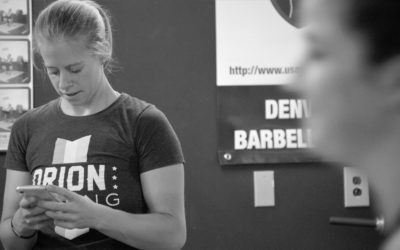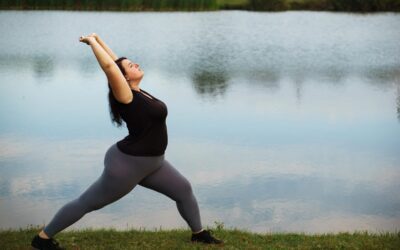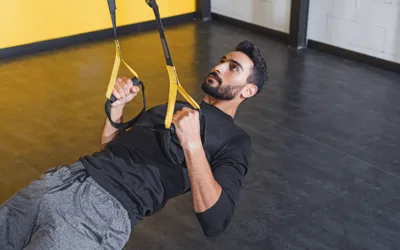Freestyle Your Chin Up Technique for a Wonder Woman Upper Bod
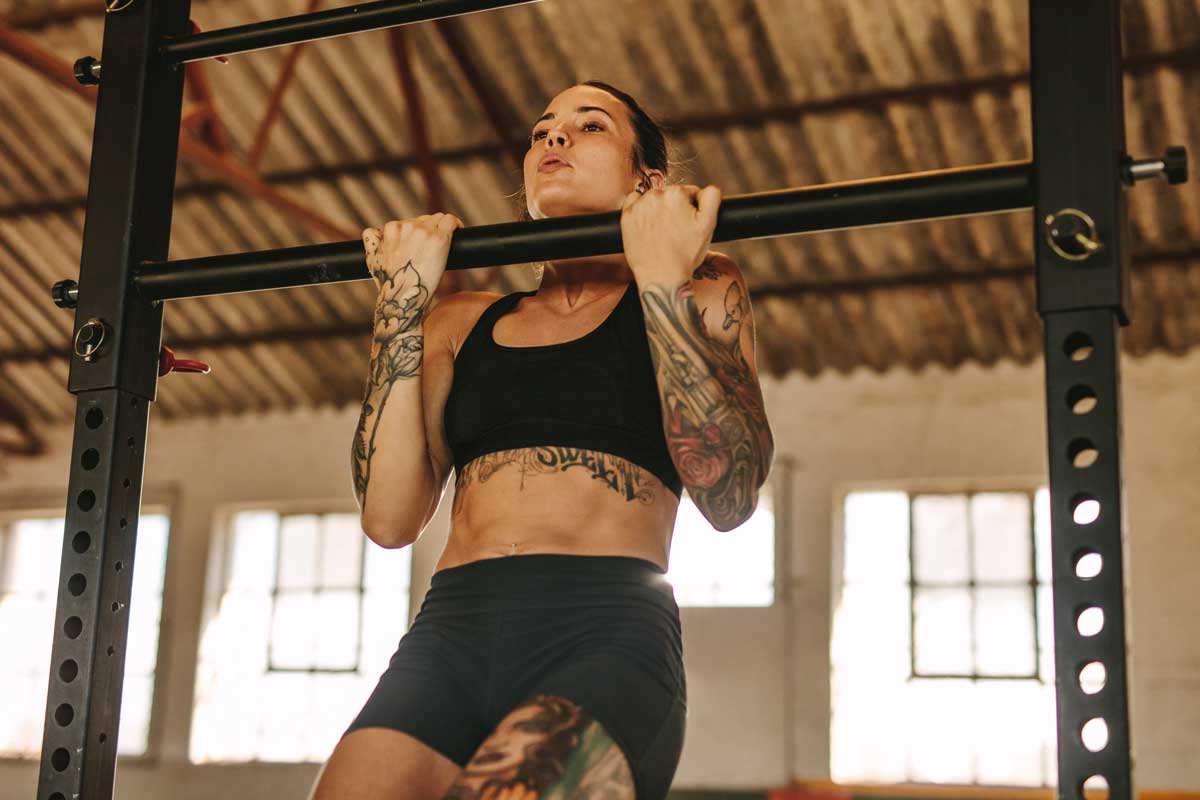
There’s nothing like a bodyweight calisthenic movement to put you in your place athletically.
Coaches often see a recurring issue with some populations of lower-body-dominant athletes who favor squats, deadlifts, and other barbell movements that use their strongest muscle groups. Sometimes these posteriorly-blessed athletes have trouble manipulating their own bodyweight in space with their arms.

Your arm workouts need more chin ups
Girl, get real. Not being able to string together strict pull ups is a total hole in your fitness game. “But my hips are just so heavy!” Yeah, and you should be able to lift them, too.
We speak from experience here, so no shame. It just means you might want to try a different tactic for training your weak upper body pulling capacity.
If holding up your bodyweight is a total nemesis movement for you and you can’t get past using bands with pull ups, maybe it’s time to switch gears and grip to focus on chin ups instead. It’s a slightly different movement—easier, but still challenging. Mixing it into your training could hit just the right stimulus angles to improve your athletic balance.
Plus, who doesn’t want to build mini meat pies for biceps to balance out those thicc cakes?
Pull ups vs. chin ups
We won’t get too into the weeds here on the history of the chin up. Suffice it to say that some people use “chin up” and “pull up” interchangeably regardless of how you perform the movement. We are not those people.
For our purposes, a chin up refers to the vertical pulling variation in which your grip is underhand/supinated—your hands are facing toward your body, not away from it. Whereas the standard pull up is performed with a double overhand grip and palms facing the wall in front of you.
At first glance, both movements seem pretty similar, but switching the position of your hands definitely changes some things in terms of the muscles worked and mechanics.
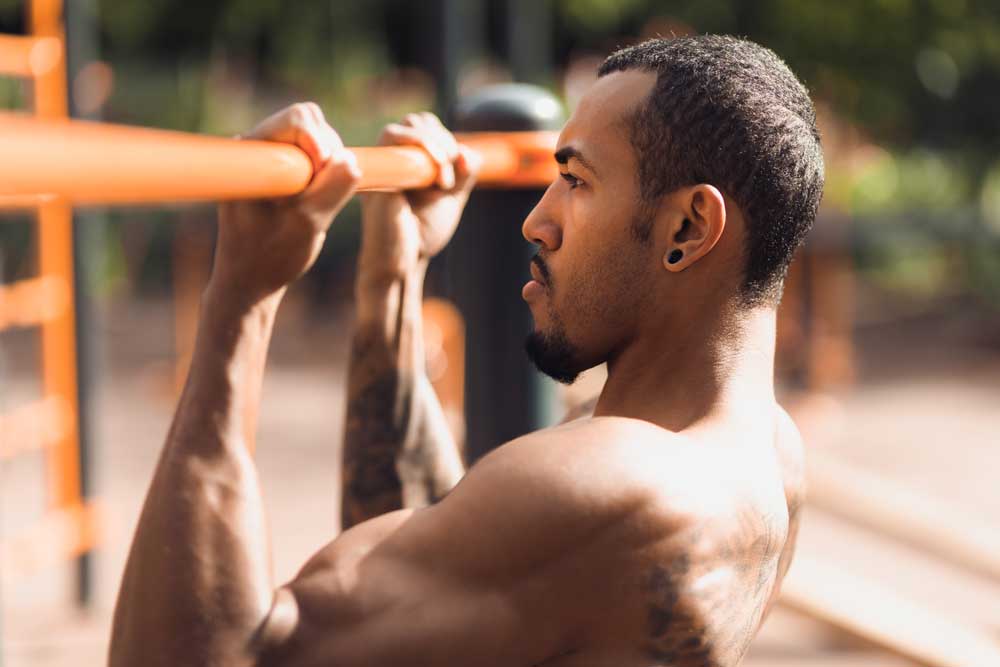
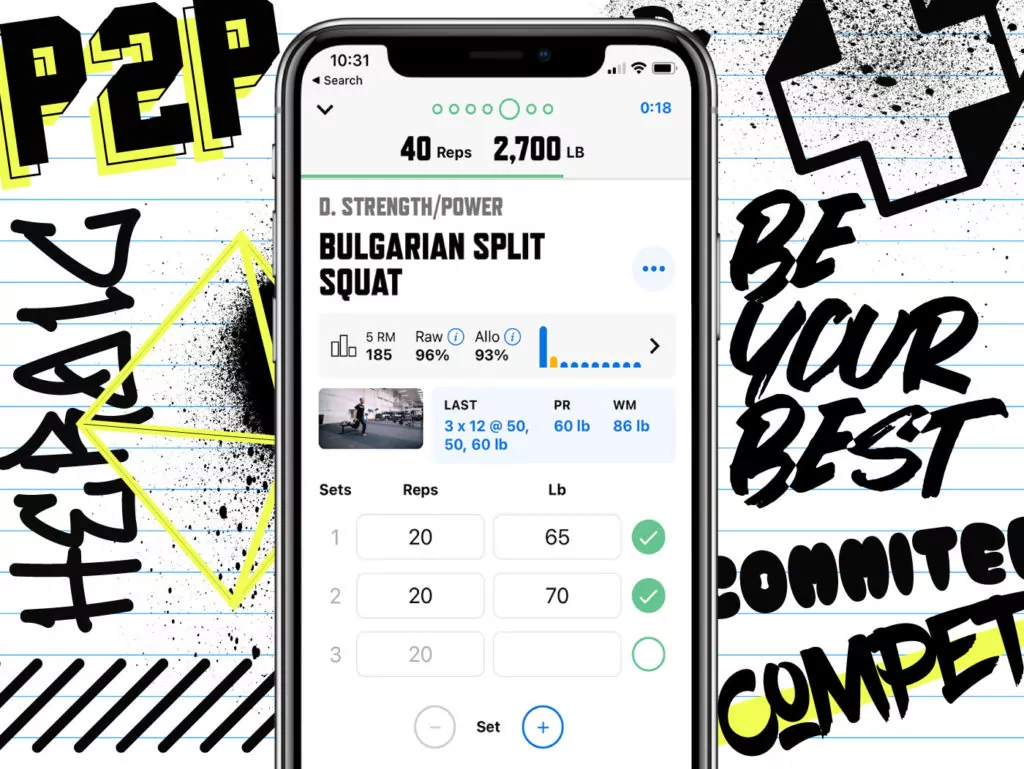

DOWNLOAD
trainheroic’s
free APP
Back and upper trunk anatomy refresher
Chin ups target most of the same muscles as pull ups, including your shoulder and scapular movers like your rhomboids, rear deltoids, and trapezius. They also work your latissimus dorsi, the broad, flat pair of muscles that take up most of your back.
Fun fact: your lats are the largest muscles of your upper body.
But the main difference between pull ups and chin ups involves the muscles of the biceps responsible for flexing your elbow: brachialis, brachioradialis, biceps brachii. Since there’s much more of a bicep curl-like position with the underhand grip of a chin up, you can use your biceps as more effective levers with the chin up as opposed to an overhand-grip pull up.
This means you can maintain a strict form for longer and typically grind out more reps with chin ups. Whereas when your pull ups start to fatigue, it gets easy to cheat the reps.
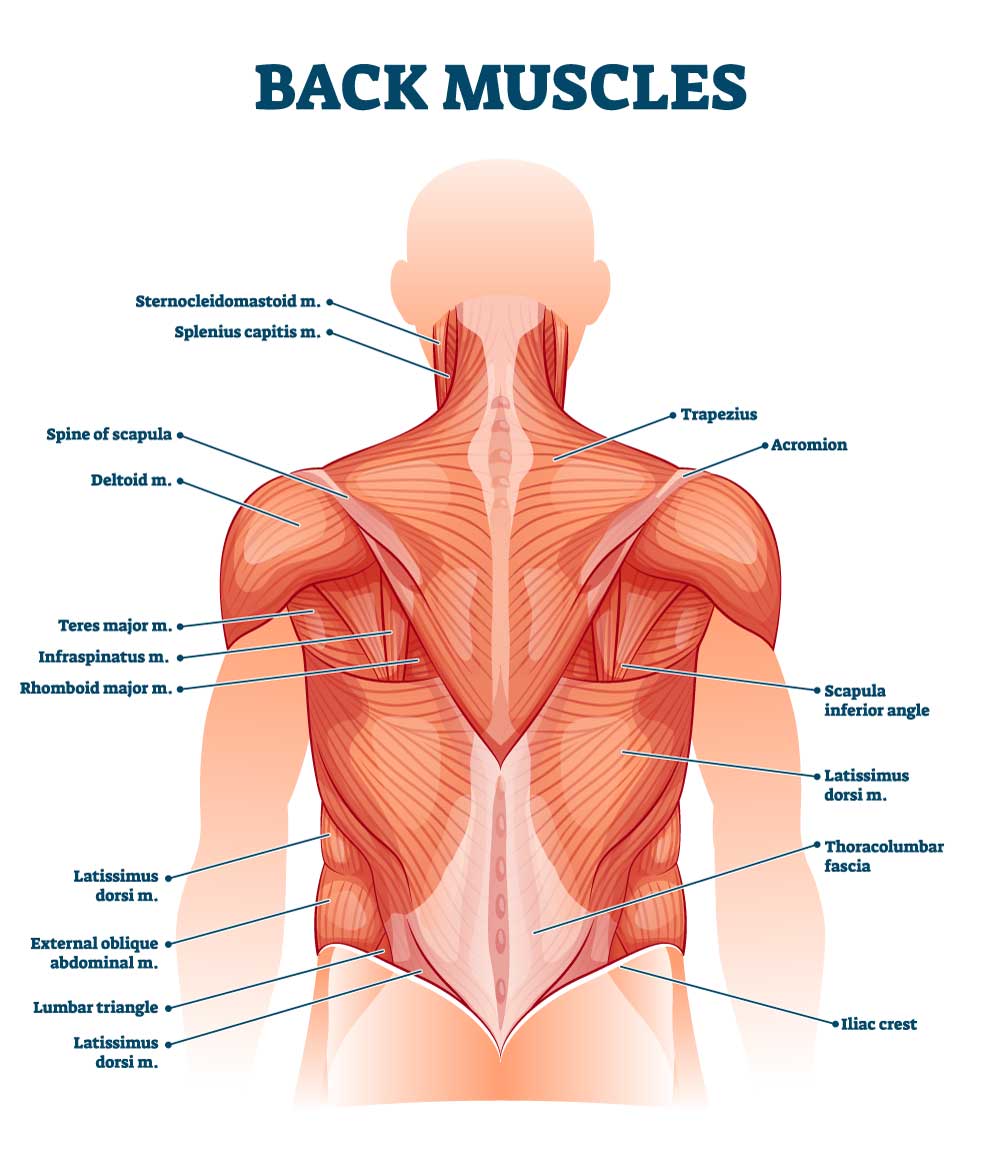
The Marketplace: Shop Expert Programming from Real Coaches
Sometimes all you need to reach your destination on your fitness journey is an expert guide. We’ve got you covered.
Browse from thousands of programs for any goal and every type of athlete.
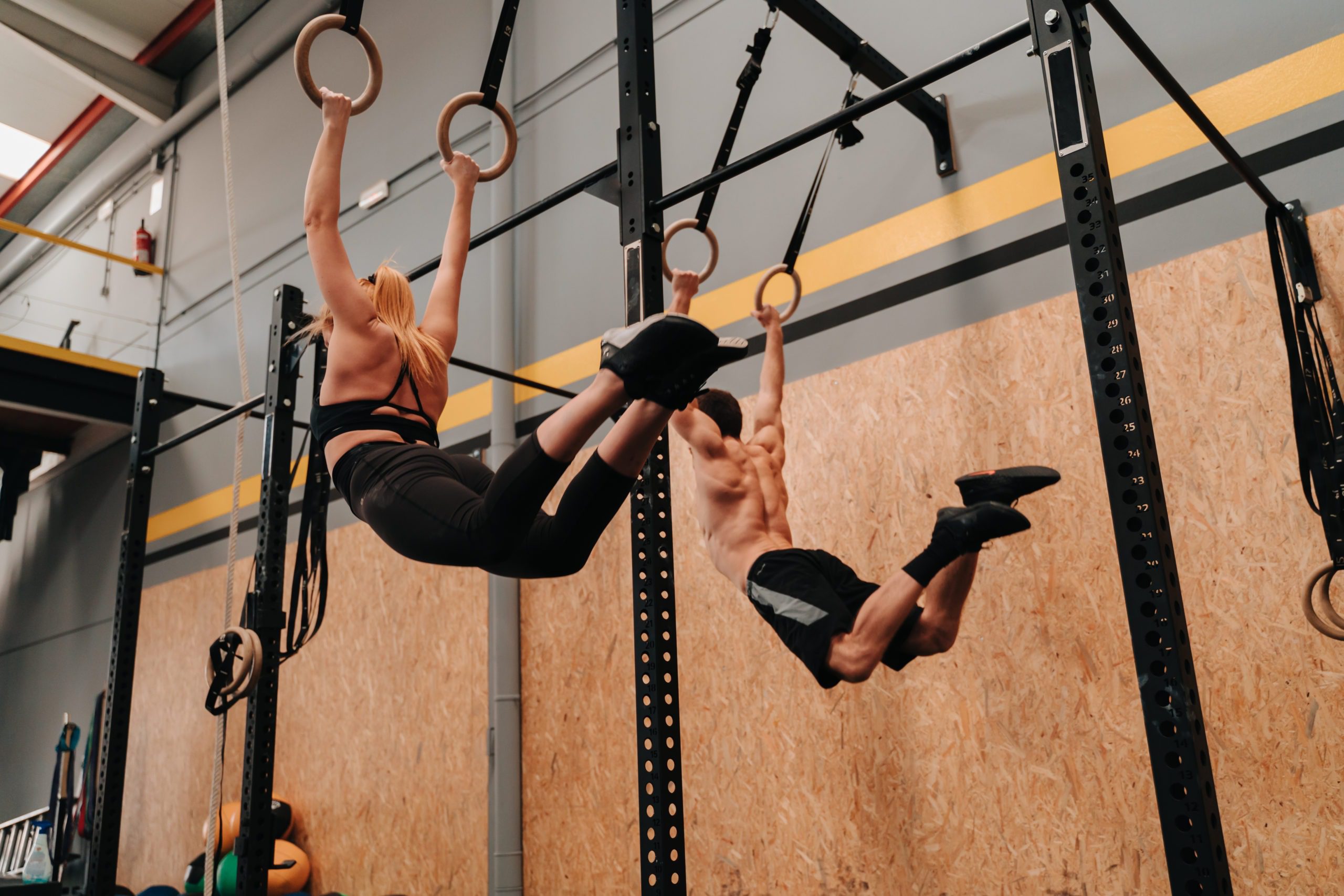
How to properly do a chin up
Points of Performance
Setup
This seems like a no-brainer, but you’d be surprised: make sure your pull up bar is sturdy enough to hold your weight. Otherwise, you’re gonna have a bad time.
Standing under your very sturdy pull up bar, reach up with both arms and rotate your hands into an underhand grip. Your palms should be facing you with your thumbs pointing to the outsides. Jump up and grab the bar at around shoulder width with this supinated grip so your body is hanging freely.
Pull
Engage your lats by pulling your shoulders away from your ears and depressing your shoulder blades. Initiate the pull by driving your elbows to the floor and lifting your body up to the bar.
Maintain tension in your upper body through the whole movement. You should be able to pull your chin to the bar, but bonus points if you pull as high as you can and get your chest to the bar.
Once you have the basics down, there’s a lot of room to play with your chin up skills. Do them with a hollow body or an arched back. Cross your legs and bend your knees, or keep your toes forward. Pull to your chin or to your chest. Just save the kipping for the CrossFit workouts.
Return
Lower yourself down from your position above the bar. If you want to up the challenge, make this return movement a 5-second negative. If you land at the bottom in a dead hang with your shoulders relaxed, don’t forget to activate your scapular muscles again before performing the next rep.
Coach’s Tip: Keep your thumb around the bar, not on top. The best way to get your upper body working properly is to wrap your thumb around the bar. This leads to more effective bicep recruitment from the rotational torque of your grip.

Lily frei
Lily is TrainHeroic’s Marketing Content Creator and a CF-L1 with an English background. She was a successful freelance marketer for the functional fitness industry until being scooped up by TrainHeroic. An uncommon combo of bookish, artsy word-nerd and lifelong athlete, Lily is passionately devoted to weightlifting, CrossFit, yoga, dance, and aerial acrobatics. Find her showcasing her artist-athlete hobbies on IG @lilylectric.
Related articles
Effective Ways to Coach At-Home Athletes
Transitioning to remote coaching presents unique challenges for strength and conditioning coaches, especially when athletes lack access to standard gym equipment. Effective communication and creative programming are essential to maintain engagement and ensure athletes continue to progress in their training.
Sustainable Steps to Healthier Living After Significant Weight Gain (BMI 40+)
Losing weight when your BMI is 40 or higher can feel impossible—but it’s not. I've helped hundreds of people, including myself, lose significant weight. One client sticks with me—a former rugby player and sumo wrestler whose health was rapidly declining. We started...
Working Out During Ramadan: Maintaining & Making Gains
It’s falsely believed by many Muslim athletes that Ramadan = losing progress (gains!). This isn’t the case if you train, fuel, hydrate, and sleep appropriately. Of course that’s easier said than done, but following a few of these strategies can make all the difference...

Join the community
Sign up for the latest training news and updates from TrainHeroic

About TrainHeroic
Support
Made with love, sweat, protein isolate and hard work in Denver, CO
© 2021 TrainHeroic, Inc. All rights reserved.

